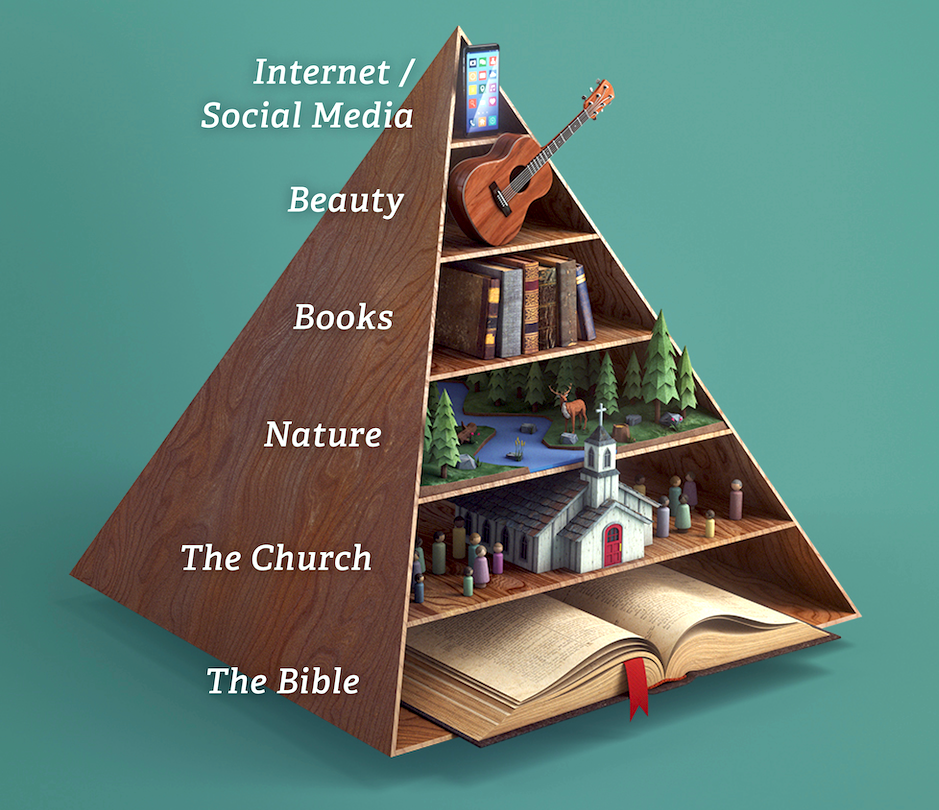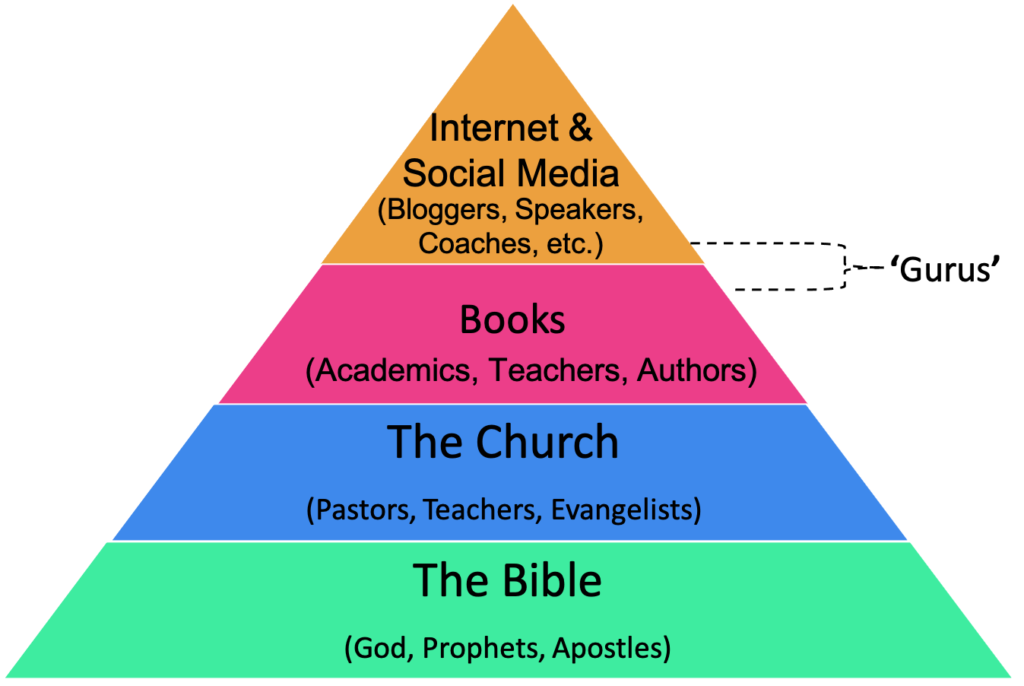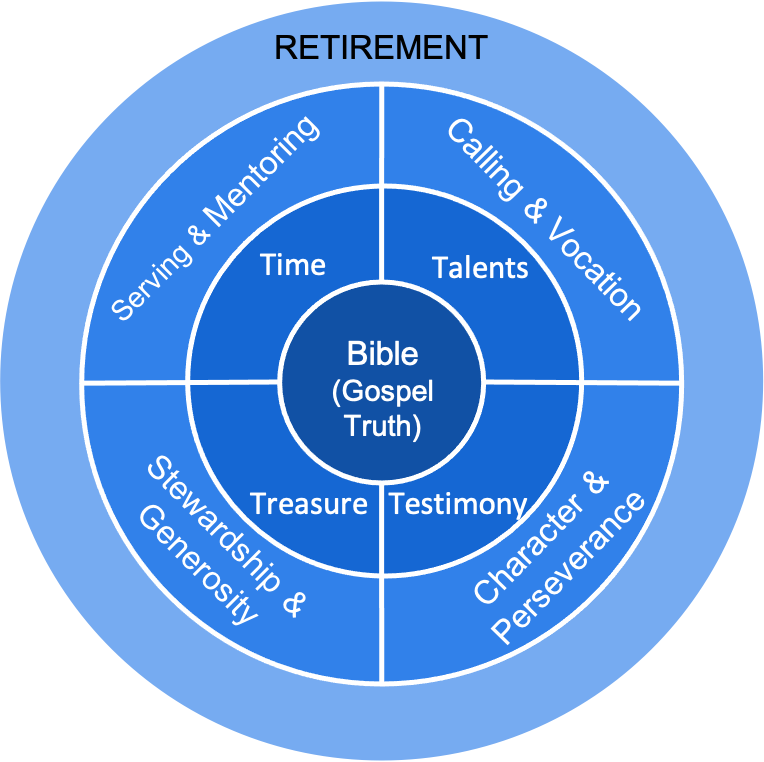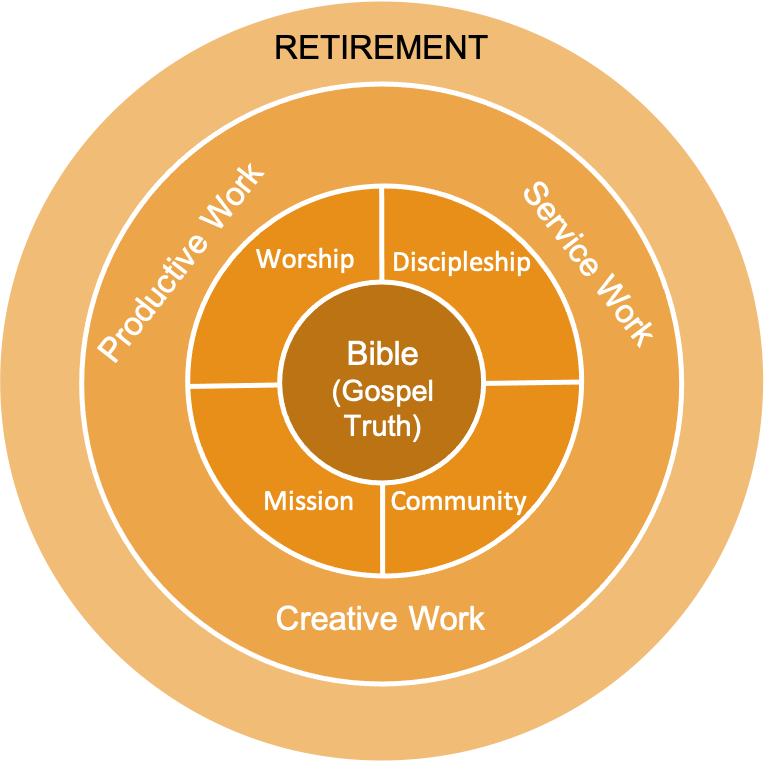
Off the bat, I want to make clear I’m talking about the word ‘guru’ here, not the cartoon character ”Gru,” villain and master of the Minions. However, one might say that Gru is a guru to the Minions.

(What can I say, I have grandchildren.)
On more than one occasion, a friend or acquaintance has referred to me as a ”retirement guru” or something to that effect—tongue-in-cheek, of course.
It’s (usually) not used sarcastically and may even be intended as a compliment. But it still makes me a little uncomfortable.
I read an article recently by Samuel D. James in Digital Liturgies after listening to a podcast about it on ”Redeeming Productivity” (Reagan Rose).
In the article, James talks about some modern gurus who are prominent in Christian culture (namely Dave Ramsey, Jordan Peterson, and Rachel Hollis), whom he describes as follows:
Peterson (12 Rules for Life) is the philosophical academic, Hollis (Girl Wash Your Face) the Instagram celebrity, and Ramsey (Total Money Makeover) the folksy, financial counseling version of Dr. Phil. Their books don’t just sell; they live atop the bestsellers lists for years at a time.
Of the three, Peterson is the only one who is not a professing Christian (though he is said to be “interested”.)
James notes that many Christians aren’t interested in these gurus (although Ramsey is probably the most popular due to Financial Peace University) and points out the mixed messages that these gurus sometimes send that can (should?) cause Christians some pause.
This got me wondering—am I a guru? And if I am, what sort of guru am I? Is that something I even want to be?
What’s a ‘guru’?
The word ‘guru’ has a specific meaning in some religions (a spiritual leader in Hinduism, for example), but the broader connotation is that of a trusted counselor, advisor, or mentor. The implication is that a guru has a deeper level of wisdom and expertise in a given area that they share with others.
So, is anyone who writes or speaks about a particular subject from deep knowledge and experience a guru?
No, that’s probably much too broad a description. Sure, some experts are, but most quietly apply their deep subject matter to their vocation. Most pastors, teachers, professors, journalists, authors, and politicians would not be considered gurus, strictly speaking.
In our current culture (Christian or not), gurus tend to be famous authors, speakers, or teachers—celebrities, if you will—who, as James says in his article,
. . . exist to fill gaps—intellectual gaps, emotional gaps, spiritual gaps, etc. How they fill those gaps matters, but the gaps themselves matter too. The contemporary culture into which Hollis, Peterson, and Ramsey speak is a deeply fractured one that inspires compulsive anxiety and isolates all of us from inter-generational wisdom and meaning.
Most contemporary gurus do what they do for a living. (Though I doubt they write ‘guru’ in the profession or employer field on any forms.) But some do guru stuff for free.
Imagine this exchange: “Hey there, Dave, I’m Chris. Hi, Chris. What do you do for a living, Dave? Well, I’m a guru, Chris.”
There are many gurus out there, especially in the ‘self-help’ field.
James suggests that these gurus exist because gaps exist—deficiencies in individuals’ ability to find the answers to the difficult questions in their lives, which he says can only be found in biblical wisdom and Christian humility. He continues:
Gurus fill gaps, but unfortunately, they usually fill them with sand. Cultivating Christian wisdom begins with humility, which foremost fears God (Prov. 9:10) and does what is right, especially by one’s neighbor (Prov. 1:10-19).
For James, that ”sand” is the fluff and futility of ‘self-help’ principles and practices that are not distinctively Christian or solidly based on Christian principles. (He acknowledges that Ramsey tends to be the most Bible-centered of the three, but with some caveats.)
In light of this, James challenges us to understand better why these gaps exist in the first place and consequently the “demand for biblically deficient gurus who can read the anxieties of the times better than many pastors.”
He goes on to say:
Theological problems notwithstanding, the reality is that these gurus are gurus in part because they are speaking into real existential crises that must be spoken into by someone. Ramsey’s “tough love” persona may be off-putting, but his average reader graduated college with over $30,000 of student loan debt, a fate so common it’s a national crisis. Peterson and Hollis are certainly not gospel-centered in their therapeutic writing. But what if there were evidence that therapeutic positivity could at least staunch the gaping wounds of depression and suicide among young girls and disaffection and radicalization of young men?
James finishes his article by suggesting that, despite their shortcomings, we don’t “throw out the wisdom baby with the (fill in the blanks) bathwater” (my parenthetical insertion—he was talking about therapeutic books and ”psychoanalytical bathwater”).
He suggests that an appropriate response to the rise of gurus in Christian circles is “a recovery of the preaching and teaching of biblical wisdom literature.”
I would say amen to that!
The” wisdom pyramid”
James’ and Rose’s perspectives on this resonate with me, as does Brett McCraken’s ”Wisdom Pyramid,” which he describes in detail in his book The Wisdom Pyramid: Feeding Your Soul in a Post-Truth World:

He describes our problem this way:
Our world has more and more information but less and less wisdom. More data; less clarity. More stimulation; less synthesis. More distraction, less stillness. More pontificating; less pondering. More opinion; less research. More speaking; less listening. More to look at; less to see. More amusements; less joy. There is more, but we are less. And we all feel it. . .
We need a diet comprised of lasting, reliable sources of wisdom rather than the fleeting, untrustworthy information that bombards us today; a diet heavy on what fosters wisdom and low on what fosters folly.
According to McCraken, he built the pyramid based on two criteria: 1) proximity to God and 2) time.
Since it’s a pyramid, it’s built from the ground up. The closer to the bottom, the closer to God and the most enduring through time.
The Bible is at the bottom and foundational because it is breathed out and mediated by God, next is God’s presence among his people (the Church), and then his creation (nature).
The further up the pyramid we go, the further away from God (and closer to man’s wisdom) we get until we reach the internet and social media, which McCraken describes as ”mediated by machine-directed algorithms… junk food ephemera for our ever changing needs…the here today gone tomorrow social media post.”
Social media and the internet can certainly be used to promulgate Christ-centered enduring ideas and truths, but the essence of McCraken’s message is that during this post-truth era, we must look first to the Bible for wisdom and truth. He sums it up this way:
The Bible is our most important source of wisdom because it is literally the eternal God—the standard and source of all truth—revealing himself. What a miraculous thing!
I like McCraken’s pyramid, so I constructed a variation of it to show how ‘gurus’ might fit in his basic scheme:

You’ll notice ”nature and beauty” aren’t in my version of his pyramid. That’s not because they’re insignificant, but because there aren’t necessarily gurus in those areas (such as artists, craftsmen, adventurers, etc.) who aren’t listed in other domains (teachers, authors, speakers, etc.).
You’ll also see that I mapped the gurus to a very small segment and a relatively small number of people in the pyramid, primarily in the realm of books and internet/social media. (Although in the wider culture, others like actors and professional athletes are followed like gurus sometimes. By that I mean their ‘fans’ ascribe a lot of weight to what they think and say. It’s strange that someone who is ultra-successful in a sport would suddenly be considered a guru in a field such as politics or economics.)
There may be a few gurus in the Church, but I think the number is insignificant. The gurus who have built their ‘guruness’ on something other than the truth of the Bible are on sinking sand.
Samuel James believes that all ”true wisdom, real encouragement, and genuine help of selves” is found in the Lord, the Creator of the Universe. He urges us to ”long for an evangelical recovery of Christ-centered wisdom teaching, teaching that has eyes wide open toward the struggles of life in decadent modern society AND a theological literacy that bottoms out in worship.”
Therefore, those (who wouldn’t call themselves gurus necessarily) who have built from a foundation of a relationship to God and the wisdom and truth of the gospel as revealed in the Bible and preached and taught by his servants in the Church and instructed and inspired by books that do the same, are on solid ground.
Am I a Guru?
I don’t consider myself a guru. Here are a few reasons why:
- I don’t have a large following (though I would like to reach more people through this ministry)—I have some blog subscribers, and I have sold (and given away) some books, but nothing like the gurus James talks about. Plus, many other Christian stewardship teachers and authors are far more successful and better known than I am. I know because I’ve studied a lot of them.
- Those who “follow” me (on Facebook or as blog subscribers) don’t do so because they think I’m a ‘guru’—they do so because I’m an average guy who’s a lot like them and who provides them with helpful and encouraging information (at least that’s what some tell me, and no one has ever seriously referred to me as a guru)—not because they think I have all the answers.
- Most of what I write and talk about didn’t originate with me—it’s a distillation of biblical wisdom and the teaching of many others combined with some of my own experience (and my experience isn’t all that special or unique).
- As far as I know, no ‘guru’ has ever sought me out for my ‘guruness’ (or mentioned me, for that matter)—my understanding is that ‘guruness’ attracts ‘guruness.’ (I did, however, have my picture taken with Dave Ramsey once, but that was because I paid him a bunch of money to go through his Financial Coaching Master Class. It was a bast.)
- Most importantly, I don’t want to be a guru (at least not in the most popular sense of the word)—I want to point people to Christ and the Bible for the answers to life’s most difficult questions. I want them to view life and retirement through the biblical lens of stewardship. I don’t want them to follow me, I want them to follow Christ.
So do where I fit on my pyramid?
Even though I don’t consider myself a guru, some of what I do is a little ‘guruesque’ in the sense that I have authored some books and a few articles for TGC and others, done a podcast or two, blog on this website, and post my articles on social media (Facebook).
But unlike many gurus, I believe that what I do is not “biblically deficient.” I think I can say with integrity that my primary aim with this blog, and with the books and articles I have written, is to offer practical wisdom on retirement stewardship (of time, talents, treasure, and testimony) based on the Bible and Christ-centered biblical teaching to help my readers navigate the complex world of planning for and living in retirement in a God-honoring and glorifying way.
My thinking in this area has been greatly influenced by men like John Piper, Randy Alcorn, Paul Tripp, Tim Challies, Ron Blue, and the late Larry Burkett. But especially the pastors in my local church who faithfully teach the Bible and cast a God-glorifying vision of what it means to live life as a disciple of Jesus Christ.
This diagram of what I call the ”Retirement Stewardship Framework” from chapter 3 of my Reimagine Retirement book shows how I think about a Bible-based, Christ-centered retirement:

With biblical truth (and the gospel) at the center and all that it entails (regeneration, faith, confession, repentance, conversion), its transforming power affects our hearts and our choices about how we steward the time, talents, treasure, and testimony of the gospel itself in retirement.
Each of those is further expanded into other dimensions of the Christian life that are vital to living in retirement in a way that honors and glorifies God: character and perseverance, calling and vocation, stewardship, and generosity, and serving and mentoring.
As an active member (and deacon) in my local church, I benefit from preaching, teaching, Bible studies, fellowship and community, and missional outreach activities. I can also serve, give, teach, mentor, and disciple.
Here’s another framework (from chapter 9 of the same book):

It shows the everyday things we do as Christians: attending services, praying, studying Scripture, giving, participating in a small group, caring for the poor, loving our neighbors, sharing the Gospel, and so forth.
But these are not the things we are called to do as the “good works” spoken of in Eph. 2:10. The idea here is that retirement shouldn’t mean a total cessation of work.
While you may enjoy recreation and leisure as a gift from God, continue to use the skills and talents he has given you in creative, productive, and ways that serve others. You may paint, write, or garden. Or perhaps you’ll begin a new career, start a new business, volunteer, or serve others in other ways but not for pay or a combination of these. All of these can bring glory to God and give you joy.
There are also financial aspects to retirement. The Bible provides much wisdom in this area. I have benefited greatly from teachers like Dave Ramsey (who is part guru), Ron Blue, Austin Pryor, Chuck Bentley, Matt Bell, Bob Lotich, Howard Dayton, Randy Alcorn, and others.
These guys teach the importance of wise stewardship. They emphasize sound principles like hard work, living below your means, controlling your spending, giving generously, saving for emergencies, and saving for the long term.
I’ve also benefited from others (who may or may not be Christians) who have written about the practical aspects of retirement planning and investing—men like Wade Pfau, Steve Vernon, John Bogel, Rick Ferri, Ron Blue, Ben Carlson, Dr. James Israelsen, and Paul Merriman.
Websites like Morningstar.com, soundmindinvesting.com, and soundinvesting.com have also benefited me and many others.
These resources help us steward our retirement assets. How to save and invest, make wise lifestyle and spending decisions before and during retirement, and ensure we have sufficient income to live on in retirement.
Are some of these guys gurus? Perhaps, as they certainly have large followings. But I view them as valuable resources that help me develop my biblical perspective on retirement and wise stewardship strategies.
I may not be a guru, but that doesn’t bother me. If I’m able to help just one person in the way that others have helped me, I’m happy.
